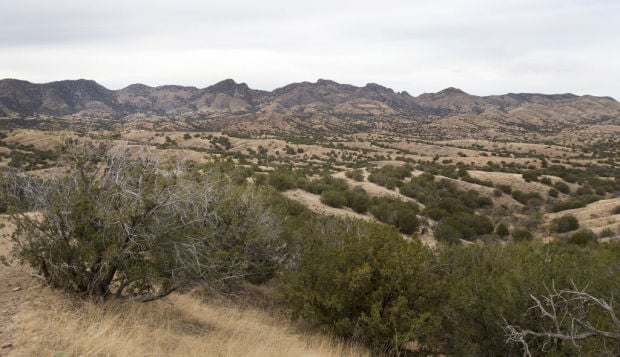The company proposing to build the Rosemont Mine is raising the possibility of challenging the U.S. Army Corps of Engineersт authority to regulate washes on the site if the Corps denies a permit to build the project.
Federal jurisdiction over those washes hasnтt been questioned since Rosemont Copper first announced its plans to build the $1.5 billion project a decade ago. The company, now owned by Toronto-based Hudbay Minerals Inc., applied for a Clean Water Act permit for the project back in 2011 and announced its intention to apply in 2008.
A Rosemont consultant, in fact, developed a preliminary version of a formal determination document showing which washes on the mine site would be covered by Clean Water Act oversight years ago.
But the broader issue of federal control over development along mostly dry washes such as these has been subject of national legal disputes for years. Experts say Rosemontтs fate could be affected by how those disputes play out in the incoming administration of President-elect Donald Trump.
People are also reading…
In a Nov. 17 letter to the Corps, Patrick Merrin, a top Hudbay official, wrote, тIn our view, there is significant uncertainty as to whether the Corps has jurisdiction over the onsite drainages. In the event of an adverse final decision on our application, we anticipate that jurisdictional arguments will be a key element of our appeal ... .т
The Corpsт lower-level Los Angeles-based office has recommended denial of Rosemontтs permit. A decision will be made by the agencyтs San Francisco-based South Pacific Division, which oversees the Los Angeles office. If that decision goes against Rosemont, the mining company legally can appeal to higher-level Corps officials who would make a final decision.
The Star obtained Merrinтs letter last week under the U.S. Freedom of Information Act, along with a letter from South Pacific Division Commander Col. Pete Helmlinger laying out some of the reason for the L.A. officeтs recommendation. Hudbay didnтt respond to questions about this issue from the Star.
The Rosemont permit application seeks permission to dredge and put fill material such as mine waste rock and tailings in several ephemeral washes, which carry water only during storms.
The fedsт authority over many desert washes in the УлшжжБВЅ area has been clear since 2008, when the U.S. government declared the Santa Cruz River a legally navigable river even though most of it also runs only during storms. Under the Corpsт and EPAтs interpretation of court rulings, dry washes that are significant tributaries to a navigable river are legally covered by Clean Water Act rules. That means permits are needed for anyone wishing to significantly alter or otherwise impact the washes.
A highly controversial 2015 federal rule known as the тWaters of the U.S.т rule would have formally inscribed that practice onto the books. The phrase тwaters of the U.S.т is used legally to describe rivers and washes that are covered by federal regulation.
But shortly after the EPA and Corps adopted the rule, many states including УлшжжБВЅ successfully stalled it in court until full-blown arguments can be heard over whether itтs legally authorized by the Clean Water Act.
Trump himself argued strongly against the тWaters of the U.S.т rule in his campaign as an example of federal overreach. He has called it extreme and unconstitutional and vows on his transition website to eliminate it.
Oklahoma Attorney General Scott Pruitt, Trumpтs pick to run the EPA, is one of 30 attorneys general who has filed suit against the rule. He and other critics say it violates private property rights and expands federal authority.
The EPA and environmentalists say the rule gives needed protection to clean water and washes that serve important biological functions and feed major rivers.



















